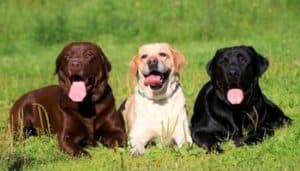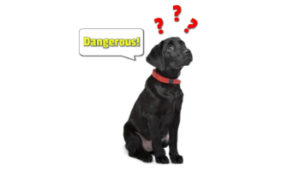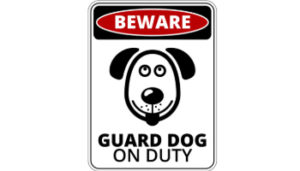
Labradors are very loving animals that show affection in many ways. I experienced this firsthand from Perdy and Molly, my two Labradors. In the twenty-plus years of friendships with my dogs, I discovered that they are affectionate creatures that can express their love in many ways.
How many different ways does a Labrador show affection? Canine specialists have identified 21 ways that Labradors express affection. These are as follows:
• Tail-wagging
• Licking
• Jumping
• Eye Contact
• Leaning
• Nosing
• Rolling over
• Following
• Roughhousing
• Stealing Dirty Socks
• Caring for You
• Guarding
• Sniffing
• Sighing
• Expressions
• Empathizing
• Toy Sharing
• Sleeping with you
• Socializing
• Loyalty
• Peeing
Yet, there is much more than just recognizing these behaviors as affection. Each expression of love by a Labrador carries a special nuances to you that are important to understand. Canine expert Cesar Milan points out that dogs use body language and motion to tell us what they are thinking and feeling. “Once we learn how to understand these, a whole world of communication with our dogs opens up,” he writes. The better you understand each of these 21 expressions of affection, the richer your relationship will be with your Labrador.
Tail-Wagging
Conventional wisdom assumes that when a dog wags its tail, it’s a sign of friendliness. Yet, researchers have discovered there are many different types of tail wags. It is important that a dog owner understands the specific language of a wagging tail.
There are three important features that you should watch for in your dog’s tail wag. First, the amount of movement in the wag is important. A slow wag indicates that the dog feels insecure, while high speed wagging reveals the dog is happy.
Second, the position of the tail reveals the dog’s attitude. When the dog is relaxed it holds its tail at mid-level. A straight-up tail means the dog is alert and is expressing dominance. A droopy tail means the dog is insecure or fearful.
Third, when a dog angles its tail to its right side, this shows more positive feelings. So, when you see your dog’s tail wagging widely and more prominently to the right in a relaxed position, you can rest assured that he is saying, “I love you.”
Licking
Another widely recognized display of affection by Labs is a warm lick on the hands or the face. While a lick may simply mean your dog likes the salty taste of your skin, many times he is communicating very specific messages. First, he may be expressing happiness that you have returned home. Pack animals commonly lick members who are returning to the group as a sign of welcome. A lick also communicates submission to the dominant pack leader. Don’t worry that your dog may be offended if you don’t return his kind gesture with a warm lick of your own. In a pack, the alpha dog never returns a lick to its follower. Just take comfort in knowing that your Labrador’s lick is his way of saying, “I missed you and I’m really glad you’re home!”
Jumping
Another way your Lab shows his affection is by jumping on you. This behavior can be very frustrating to a dog owner, but it is helpful to understand exactly what your dog is communicating when he jumps on you. From their days as a young puppy, dogs learn that close relationships involve much “face time.” Thus, dogs are attracted to their owner’s face, and when your Labrador lunges up on you, he is trying to get closer to you and connect emotionally with you.
Understanding the reason for his behavior can help you remain calm and develop a plan to control his excitement. Experts recommend that owners take a simple step to reduce jumping. “If your dog jumps on you, ignore them. Turn and go out the door,” recommends the Humane Society. By consistently refusing to reward his rowdy behavior, you can teach your dog to express his affection in a more appropriate manner.
Eye Contact
Eye contact for a dog can communicate many emotions. It can be used to issue a challenge to an unknown person or animal that invades the dog’s territory. It also may indicate that the dog is needing some attention from a human owner, as if it is saying, “Please fill up my water dish.” Yet, your dog’s eye contact is often a way that they use to show their love.
Modern science supports the connection between eye contact and affectionate attachment. In 2015, Japanese researchers discovered that the level of oxytocin increased in both the humans and their pets when they gazed at each other for 30 minutes. Oxytocin is popularly known as the “love hormone” and is associated with increased feelings of love and affection. So, your dog’s desire to look deeply into your eyes is his way of communicating his trust and close bond with you.
Leaning
Labradors also may show their love by affectionately leaning against their owner while receiving a pat on the head. While a dog’s physical brushing up against you may be a warning sign from an aggressive dog, there are tell-tale signs that a lean is loving. First, the dog’s body will be relaxed, not stiff and taut. Second, the dog’s mouth will probably hang loosely open. Finally, the dog’s tail will be relaxed with sweeping wags. This love lean is your dog’s way of saying, “I trust you completely and want to be close to you.”
Nosing
A Labrador’s nose is its greatest tool. It is one of the most sensitive noses in the canine world. Scientists have discovered that dogs can track scents that are six weeks old. However, your dog’s nose also can be a communication tool to express many different messages. First, it can mean the dog is trying to direct you, as livestock dogs will herd a flock. Second, a nose nudge can be a challenge, as a dog may aggressively and repeatedly nudge you to get a desired object. However, a nose nudge is often your dog’s friendly greeting as you arrive home. Canine experts have found that dogs often greet dominant members of the pack with a nose nudge to the mouth and face as a sign of submission. So, as your dog gently pokes its nose in your hand or hip, remember that he is saying, “Welcome home! I missed you and am ready to serve you.”
Rolling over
While rolling over may be an expression of love by your Labrador, there are a few specific signs to watch for to be sure that is his message. This is because dogs roll over for several reasons. They may be wanting attention, expressing confidence, or just scratching their back. These are the signs that your dog’s roll-over means “I love you.” First, his tail will be wagging, indicating he is relaxed. Second, his mouth will be loosely open, which means he is comfortable. When your dog displays this position, he is saying, “I trust you, and you can trust me – I am not a threat.”
Following
Many Labrador owners have experienced the “Velcro dog” syndrome: their pet follows them around constantly. Though the dog may do this because he knows his owner will likely feed him or give him attention, there may also be a deeper reason. The dog may be following his owner out of love. Since your dog is designed to be a part of a pack, he has a strong desire to maintain a positive social bond with you, his pack leader. He naturally feels more secure in the presence of the pack, so following you around provides a sense of well-being. When he is on your heels realize that he is saying, “I love being with you because you make me feel safe and secure!”
Roughhousing
Researchers Barbara Smuts and Camille Ward have discovered that an important part of a dog’s natural development in roughhousing with other dogs. After studying dog play for 10 years, the two have concluded that it is a form of bonding with their pack. “Our research shows that for many dogs, play fighting is the primary method used to negotiate new relationships and develop lasting friendships,” they conclude. So, when your Labrador wants to roughhouse with you, it is a sign of deep affection. As writer and dog-lover Modi Ramos says, “When your dog starts initiating this kind of play with you, consider it one of their greatest compliments. …it’s their way of telling you not only that they trust you, but that they think you’re super fun to be around.”
Stealing Dirty Socks
The stealing of dirty socks, underwear, and pantyhose is a common habit of many dogs. In 2014, a Great Dane in Portland, Oregon had over 43 socks removed from his digestive tract. While some of this thievery may be explained by playfulness, many researchers believe that when a Labrador steals your dirty socks, it is a sign of affection. Though this may seem at first to be an unusual way to express love, it actually has a good scientific basis. There is no better way for the dog to be reminded of the owner he loves, than by taking a soiled piece of clothing with his scent. When your dog runs off with your socks, remember that he is saying, “I missed you today, and I’m glad you’re home!”
Caring For You
Your Labrador instinctively desires to care for his pack family. This caring behavior is displayed across the canine world. Researchers have discovered that even wild dog packs in Africa care for each other. When old or sick pack members are not able to participate in a kill, young pack members will provide them with food. When your dog lays by you when you are sick, he is telling you, “I feel your pain and care about you.”
Guarding
Another display of affection by your Labrador is his protective guarding of you. Experts explain that dogs naturally guard items they consider valuable: a bone, a blanket, and especially food. When your dog comes to your defense when you are threatened, it is a high compliment. He is saying, “You are very valuable to me. I will protect you with my life!”
Sniffing
Though it may not seem to be loving, a sniff is another way your Labrador shows affection. In a dog’s world, sniffing the tail of another dog is equivalent to a human handshake. It is a way of introduction, and an indication that the dog wants to know another better. Scientists have found that dogs actually recognize their human owners’ scent and react positively to it. They measured the brain waves of 12 dogs from different breeds when they were exposed to the scents of their owners and strangers. The dogs’ brain response was strongest when they smelled their owners’ odors.
Sighing
One of the most common ways a dog communicates is through its voice. Experts have identified many different types of sounds that dogs use: barking, baying, growling, whining, and moans/sighs. This last type is often your dog’s way of communicating appreciation and affection to you. They learned this type of communication as puppies when they were near their mothers in their earliest days. When your Labrador lets out a long sigh as it lies next to you with half-closed eyes, he is saying, “I enjoy being with you.”
Expressions
Your dog can also show affection to you by the expressions on its face. It may even seem to be smiling as it opens its mouth and stretches its lips. Experts believe that dogs use the expression of a smile for a few reasons. First, it may be that they are opening their mouths wider to take in more of their owner’s scent, which is pleasing to them. Second, it also can be a sign that they want to please you. So, when your dog smiles at you, he is saying, “You make me happy, and I want to please you.”
Empathizing
Another way your Labrador can show affection is by empathizing with you. While dog owners have long believed that their dogs displayed empathy for their humans, science has recently proven this. Dr. Kazuo Fujita of Kyoto University led a study of dogs’ reactions when their owners were mistreated. When the humans were treated rudely, their dogs were then offered food by the offending person. The large majority of the 54 dogs refused to take the food.
Toy Sharing
A common way that your dog indicates his love for you is when he brings his toy to you. This is similar to the behavior of dogs in the pack who bring captured prey back home to share it with the family. When your dog welcomes you with his favorite toy in his mouth, it is more than an invitation to play. It is as if he is bringing you a gift. When he does this, he is saying, “I think you are so special I want to give you my most prized possession.”
Sleeping with You
Another clear indication of their affection is your Labrador’s desire to be near you at night. I experienced this first hand, as each night my white Labrador Molly would lie outside my door, just a few feet away from my bed. This indicates that your dog considers you part of his family, reminiscent of his earliest days sleeping with his litter mates sprawled out on each other. His desire to sleep next to you is his way of saying, “I want to be close to you because you make me feel comfortable and secure.”
Socializing
As a pack animal, dogs have a strong instinctive need for socialization with his pack. He depends on the pack for help surviving and companionship, so he values each member. This is why the pack enthusiastically welcomes back a member who has away. In your Labrador’s world, you are his pack. His hearty welcome when you come home in the evening and his desire to be near you is his way of saying, “You are special to me. I can’t make it without you.”
Loyalty
Loyalty is another love language of your Labrador. This is another characteristic that your dog possesses due to its pack instincts. It was seen poignantly in Los Angeles in 2012 when a black Labrador named Maggie remained at the side of a dog killed on a city highway. She laid by her fallen companion until animal control officers removed her hours later. When your dog shows you loyalty, he is saying, “I will stay at your side because you are more important to me than my own safety or life.”
Peeing
Finally, your Labrador may show its affection in a most unusual way – by peeing. While peeing is clearly recognized as a way that dogs communicate with other animals (i.e. marking their territory), it is often missed as a type of love language. Yet, canine experts have learned that at times a dog will pee in front of the leader as a sign of submission. So, if your dog wets on the floor when you arrive home, he may be saying, “You are my leader, and I respect you!”



